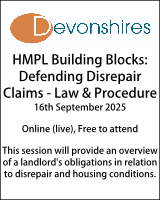Newsletter registration
First Minister hails Commmission for Justice in Wales report as "watershed moment"
Wales’ First Minister Mark Drakeford has hailed last week’s report of the Commission on Justice in Wales as “a watershed moment” and the most comprehensive exercise ever in examining Wales’s justice system.
- Details
Mr Drakeford said the most striking finding was that “the people of Wales are being let down by their justice system”.
He said: “We should not underestimate the significance of that finding. A fair, effective and accessible justice system is a cornerstone of freedom and democracy. It is, or should be, non-negotiable. We should not allow ourselves to become accustomed to, still less to accept, any failure to meet those standards.”
The report had noted that in many parts of Wales people faced long and difficult journeys to their nearest court and that there were areas with a serious risk to the sustainability of legal practice.
It noted that while much of the justice budget in Wales came from the Welsh Government, justice was not devolved leaving responsibility with Westminster and creating an unsatisfactory mixed system.
The report said: “We do not see how it is possible to carry out the changes that are needed in a way that provides a practical long-term solution and makes a real difference to the people of Wales, without substantial devolution of justice functions”.
Mr Drakeford said that in the past supporters of devolution had based their argument on constitutional issues but “this report tells us is that there are real and insurmountable practical challenges which flow from the division of responsibilities between Westminster and Wales”.
He said the Welsh Government would open dialogue with central government on this once a new parliament was elected.
Among the commission’s recommendations were:
- A new justice department in the Welsh Government led by a cabinet minister.
- A ‘law of Wales’, distinct from that of England and Wales, with Wales’ own High Court and Court of Appeal, and a Welsh judge at the Supreme Court.
- Devolution of policing and crime reduction policy, including drug abuse and mental health-related issues.
- The law relating to children and family justice in Wales should be brought together in one coherent legal system.
In relation to administrative justice the Commission had said the proportion of challenges to decisions made by Welsh public authorities that are heard in Wales was low.
"The one element of justice administration which is devolved – the Welsh tribunals – needs to be seen to be fully independent from the Welsh Government and also needs a closer relationship with other bodies that review administrative decisions in Wales. The Welsh tribunals have been under-used as a means of enforcing Welsh legislation," the report said.
Mark Smulian
Trust Solicitor (Public & Healthcare Law)
Trust Solicitor (Employment & Contract Law)
Locums
Poll































